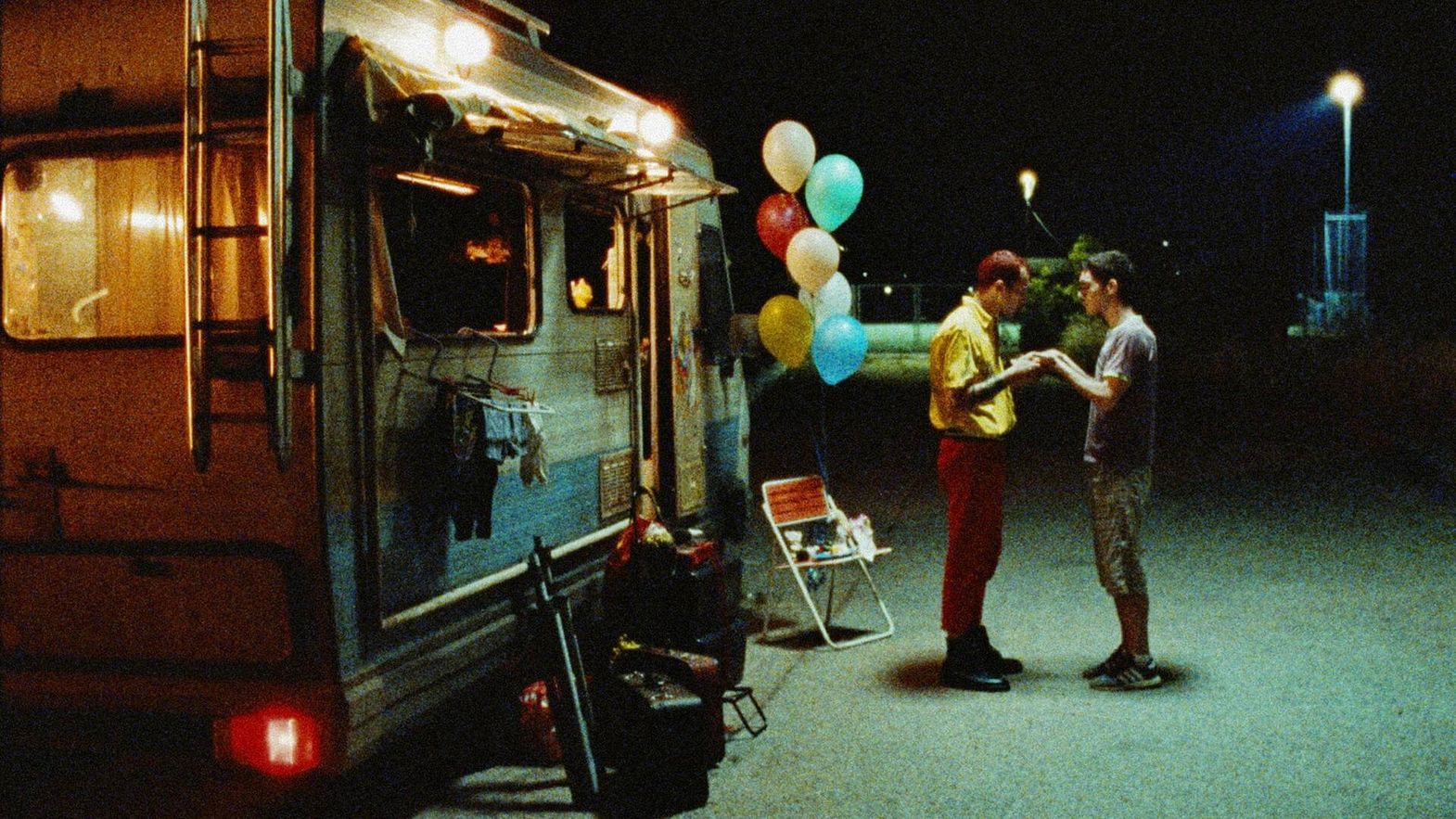 © Claudia Sicuranza
© Claudia Sicuranza
Shot on 16mm in the countryside of Abruzzo, Italy, Patagonia, in the Concorso internazionale at Locarno76, marks the directorial debut of Simone Bozzelli, author of appreciated shorts such as Playtime, presented in 2021 at Locarno in the Pardi di domani section.
How did this debut come about after your short films?
Whenever I had an idea for a story, I always thought big to be a potential feature, but at the beginning it’s good to practice in a smaller dimension. Patagonia was born from a personal experience. Then, together with my screenwriter, we found narrative topics to develop the story of the film that could metaphorize that feeling.
Yours is a cinema of characters, of sensitivity. How did you work with the main character, who the camera is always very close to?
The part I like most about making a film, along with editing, is finding the actors. I went to the places with a casting director to look for these faces first and then these energies. I always like to mix professional and non-professional actors, to create an atmosphere in which I personally feel comfortable, made up of people with whom I want to spend time. The proximity with the camera to the characters was born from the low budget for the sets of the short films; So, the only thing I could do was bet everything on the actors, hide what was not "staged".
Does title Patagonia refer to a hope, to a possibility of getting out of a daily life that is limiting? How did that imagery and a song come about that comes back in the film and sings its praises?
The title Patagonia was born from that song, which was important to me in a relationship. But I liked the fact that it also became a geographical reference, not knowing anything about Patagonia, except that it is also called Tierra del Fuego, because when they discovered it, as they say in the film, there were big bonfires lit, because it's very cold there. I liked the idea of a place that is idealized by not knowing about it and for this reason it has no boundaries, even if it is maybe a cage. And that maybe you can feel good even in a cage.
The camper in which the protagonist spends his days initially seems a place of freedom, but then it also becomes a cage.
The idea was to create a somewhat gypsy environment, made of campers and absence of roots, of a relationship or of a physical place that can be a home. Always maintaining a four-wheeled or emotional way out. I was interested in talking about a suffocating relationship in a totally anarchic place like a rave party, where everything is allowed and everyone is welcome. I liked this claustrophobic contrast.
There is a phrase that Yuri says: "I always feel punished, I never know what I did wrong". Can it represent a kind of manifesto of this character, of his almost unconscious marginality?
I like to tell characters who live the experience of falling in love or desire, but who collapse under the weight of love. Because they give the other complete power, even of their being good or bad. It is always dangerous, but for me always extremely fascinating, to see how far you can go.
In the film there’s a lot of symbolism, for example animals, to which Yuri approaches, perhaps so as not to have to communicate in words.
Even in my short films animals are very present. I have always had a great tenderness towards them. One of the earliest memories I have as a child is of classmates pricking a bark with pine needles to kill ants. I remember crying for a week after seeing the scene. I was destroyed by the fact that people, for fun, were hurting such a helpless being. Speaking of all this, I am reminded of what Yuri suffers and the tenderness I have towards him, but also of the other protagonist Augustine. There's a line from The White Ribbon, a movie I love very much, where one of the characters says, "You have to suffer so much to be so bad." Even behind that perfidy we can glimpse a suffering, and it is right to stage it, in a film that talks about this.
Mauro Donzelli